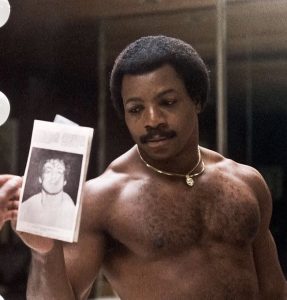Queen members have released a rediscovered song featuring late frontman Freddie Mercury, who died in 1991. It’s the first time fans have heard new music featuring the late frontman’s instantly recognisable vocals in eight years.
The existence of the song, titled Face It Alone, was first revealed to fans earlier this year by guitarist Brian May and drummer Roger Taylor.
Also Read| Queen release unheard track, Face It Alone, featuring Freddie Mercury vocals
Who was Freddie Mercury?
Farrokh Bulsara, better known by his stage name Freddie Mercury, was a British singer and songwriter who rose to prominence as the lead singer of the rock group Queen. Mercury was born on September 5, 1946, in Stone Town, Zanzibar, now part of Tanzania.
His parents, Bomi Bulsara (1922-2016) and Jer Bulsara (1908-2003), belonged to the Parsi ethnic group in western India. Mercury had a younger sister named Kashmira. The Bulsaras originated in the Gujarati city of Bulsar, which is today known as Valsad.
Bomi and his family had relocated to Zanzibar so that he could continue working as a cashier at the British Colonial Office. The Bulsaras were Parsis who practised Zoroastrianism. Mercury was born with four extra incisors, which he credits for his increased vocal range.
Also Read| Harley Quinn: A Very Problematic Valentine’s Day Special: Release date, cast, and plot
Mercury spent the majority of his childhood in India, where he moved live with family at the age of seven and started taking piano lessons. Mercury was enrolled in St. Peter’s School, a boys’ boarding school in Panchgani, close to Bombay, in 1954 when he was eight years old. When he was 12 years old, he started the Hectics, a school band that played rock and roll covers of Little Richard and Cliff Richard. The only music Mercury listened to and played was Western pop music, according to one of his former bandmates from the Hectics. It was also at St. Peter’s that he started calling himself “Freddie.”
After years of studying and writing music, he formed Queen in 1970 with guitarist Brian May and drummer Roger Taylor. Mercury wrote many Queen hits, including Killer Queen, Bohemian Rhapsody, Somebody to Love, We Are the Champions, Don’t Stop Me Now, and Crazy Little Thing Called Love. During his charismatic stage performances, he frequently interacted with the audience, as seen at the 1985 Live Aid concert. He also had a solo career and worked as a producer and session musician for other musicians.
Also Read| Spirited trailer: Ryan Reynolds, Will Ferrell in new musical twist to A Christmas Carol
Mercury was inducted posthumously into the UK Music Hall of Fame in 2004, the Songwriters Hall of Fame in 2003, and the Rock & Roll Hall of Fame in 2001 as a member of Queen. He and the other members of Queen received the Brit Award for Outstanding Contribution to British Music in 1990, and Mercury received it on his own one year after his passing. In 2005, the British Academy of Songwriters, Composers, and Authors presented Queen with the Ivor Novello Award for Outstanding Song Collection. In a survey of the 100 Greatest Britons conducted by the BBC in 2002, Mercury was ranked number 58.
Mercury began seeing Mary Austin in the early 1970s after meeting her through guitarist Brian May. Their relationship lasted for several years. Austin, a Londoner born in Fulham, first met Mercury in 1969, a year before Queen was founded, when she was 19 and he was 24 years old. Mercury came out to Austin about his sexual orientation in December 1976, putting an end to their romance.
Also Read| Jamie Lee Curtis posts pictures with daughters on Halloween Ends red carpet
While some speculated that Mercury concealed his sexual orientation from the public, others claimed he was “openly gay” or bisexual.
Through the years, Mercury and Austin remained friends, he frequently referred to her as his one and only true friend.
By 1985, he had a new long-term relationship with Jim Hutton (1949–2010), an Irish hairdresser, whom he referred to as his husband. Mercury stated he “honestly couldn’t ask for better” and that their relationship is “based on solace and understanding.” Mercury spent the final seven years of his life with Hutton, who discovered he was HIV-positive in 1990. Hutton cared for Mercury throughout his illness, and he passed away with Hutton at his side.
Also Read| Jamie Foxx stopped, YK Osiris confronted: All the drama at Cardi B’s 30th birthday party
In 1987, Mercury was diagnosed with AIDS. He continued to record with Queen and was included on their final album, Made in Heaven, posthumously (1995). Mercury passed away at his Kensington home on the evening of November 24, 1991, barely 24 hours after making the comment. He was 45 years old. AIDS-related bronchial pneumonia was the cause of death.
In 1992, a tribute concert to him was held at Wembley Stadium to raise funds for AIDS awareness. The 2018 biopic Bohemian Rhapsody centred on his time with Queen.







